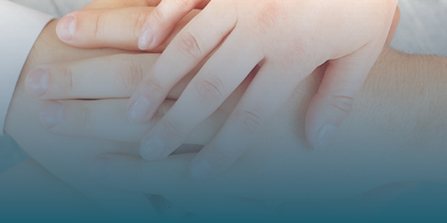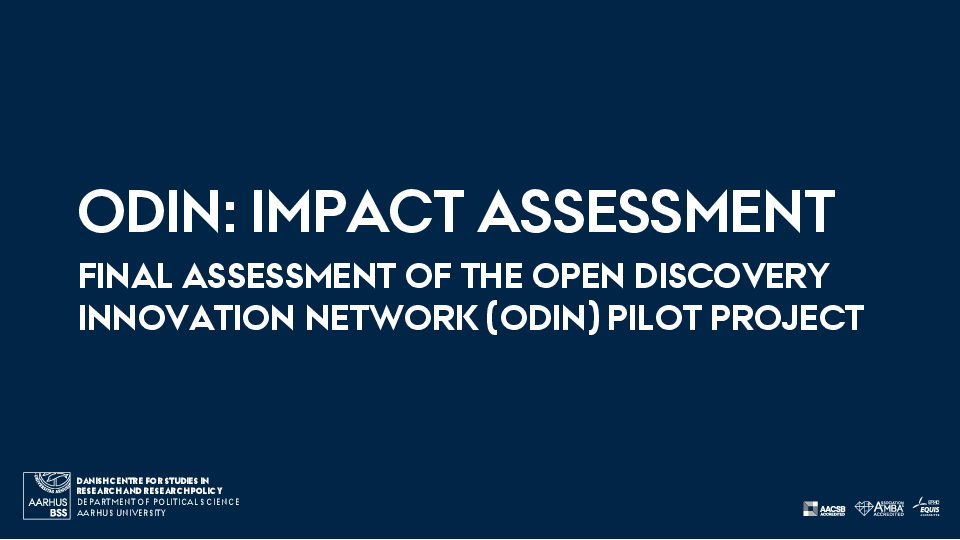




What is PRE-COMPETITIVE research?
ANSWER
Pre-competitive research refers to early-stage research conducted before it becomes business-sensitive, meaning companies do not yet need to secure intellectual property (IP) to protect their investments. While universities could theoretically patent findings at this stage, it is not commercially viable since the knowledge produced serves as a foundation for future drug and diagnostics development but does not directly integrate into final products requiring exclusive rights. As a result, ODIN only funds projects at the pre-competitive stage.
Why It Matters
Many companies face similar early-stage research challenges. By collaborating in the pre-competitive phase, they can share knowledge, de-risk innovation, and accelerate discovery. This collective approach helps validate research faster, guiding better candidate selection for the costly and high-risk clinical trial phase. The knowledge generated remains open for all, but companies can later build on these findings for proprietary innovations.
Self-Regulation
Pre-competitive research is self-regulating—companies will not engage in open projects unless they truly belong in this early stage. ODIN does not impose strict definitions, as experience from the ODIN pilot shows that companies naturally avoid collaborations that are too commercially sensitive. The industrial partners and academic business developers will be able to identify which projects are suited for ODIN, and at what stage they should leave the ODIN platform to become closed innovation projects.
What does OPENNESS mean in ODIN projects?
ANSWER
All ODIN projects must share their data and findings with the public, ensuring unrestricted access to knowledge that can benefit the broader research and innovation community.
- Whom We Share With: Data and findings from ODIN projects must be accessible to everyone with no access restrictions. All foreground results generated through ODIN-funded projects are shared with universal use rights.
- When We Share: Projects must share their data as soon as possible, and latest by the end of the project. To facilitate ongoing knowledge exchange, grant holders are required to participate in ODIN-organized knowledge-sharing events, providing updates on their project’s progress.
- What We Share ODIN projects must share all foreground knowledge, including data and findings generated during the project period. Both academic and industrial participants may retain background knowledge (pre-existing knowledge brought into the project), as long as it does not limit the usefulness of the shared foreground knowledge.
- Examples of shared data include: Identified biomarkers, small programs & software tools and large datasets
- To ensure the data is useful and reusable, all projects must follow the FAIR principles and share their data under a CC BY or CC0 license, allowing unrestricted use by others.
- Where We Share ODIN has a dedicated community on Zenodo, where all project data and findings are made publicly available. While project participants may use other open-access platforms for data sharing, they are required to also upload their data to Zenodo to ensure centralized access.
🔗 Access ODIN’s published data and findings here: Zenodo ODIN Community
What type of CREATIVE COMMONS are used for the open results?
ANSWER
All open results from ODIN projects must be published under either the Creative Commons CC0 or CC BY licenses. Creative Commons licenses provide a standardized way to grant the public permission to use copyrighted material. These licenses ensure that individuals, companies, and institutions can legally use, share, and build upon the published work.
- CC BY (Attribution): This license allows anyone to distribute, remix, adapt, and build upon the material in any format, including for commercial purposes, as long as they give credit to the original creator. This enables broad use of ODIN project data for downstream innovation.
- CC0 (Public Domain Dedication): This option goes a step further, allowing creators to waive all rights to their work, making it completely open for any use without restriction. Essentially, it is a “no rights reserved” license.
For more details, visit the Creative Commons website.
Doesn't ODIN like PATENTS?
ANSWER
ODIN sees patents as an important tool in the innovation process. Our open knowledge and results are important to drive discoveries and innovation, but they are not fully formed solutions or integral parts of a final product that a company (or university) would need to seek out intellectual property rights for. We encourage open collaboration at the precompetitive stage that offer the building blocks for eventual innovation downstream. Anyone can use these open results for commercial purposes - and even protect the specific applications they develop after ODIN. This openness also allows for more publications and use of the created knowledge for a larger global impact overall.
Is the ODIN platform a SUCCESS?
ANSWER
Yes, we certainly think so, but we'll let you decide for yourself. A team of independent researchers evaluated the ODIN pilot (2020-2023). You can find a link to the impact assessment here. The current national continuation of ODIN from 2024-2029 builds on the same principles as the ODIN pilot - we have just expanded to involve more partners (both academic and industrial).
In addition, as of January 2025, the 11 pilot projects from ODIN have:
- Submitted over 20 papers for publication
- Received over 44 million DKK in follow-on project funding
Collaboration with industry also remains strong:
- Most teams continue to work with their original company partners on new or ODIN-related projects.
- One project is advancing a lead drug candidate in closed collaboration with their company partner, based on ODIN results.
- One project is developing a business model to offer paid services with an ODIN partner company.
- 3 ODIN-related postdocs have transitioned to a permanent role within a company partner.
- Many teams are forming new international collaborations with both public and private organizations.
- Several projects have been approached by new companies to collaborate based on expertise gained during ODIN.
- One project has led to a spin-out company.
The ODIN initiative has demonstrated its ability to catalyze meaningful and sustained impact, driving innovation, fostering collaboration, and attracting significant follow-on funding. These results highlight the program’s critical role in advancing translational research and building long-term partnerships between academia and industry.






Who can PARTICIPATE in ODIN?
ANSWER
Basically, anyone interested can join the ODIN platform, post ideas and participate in an ODIN project, as long as their organisation can comply with the standardized open terms and conditions of ODIN. The minimum participation for a project is one academic partner and one company partner, but we encourage as many as necessary to create a strong project.
The main applicant must be an associate or full professor at one of the 5 partner universities that have already accepted the open terms and conditions in ODIN:
- AAU: Aalborg University
- AU: Aarhus University
- DTU: Techinical University of Denmark
- KU: University of Copenhagen
- SDU: University of Southern Denmark
Researchers from other universities, hospitals, and non-profits can be project partners and receive funding alongside the main applicant.
Similarly, any company (regardless of size) can participate in an ODIN project if they have an interest in drug discovery and/or diagnostics and can accept the open approach and standard project agreement. A group of Danish and international companies have already shown interest in the ODIN platform by signing the framework agreement.
What are the RESEARCH TOPICS in ODIN?
ANSWER
ODIN focuses on areas that hold a strong potential for the Danish ecosystem and global human health in general. Projects should have the ultimate aim of leading toward new drug discovery or diagnostics development by addressing unment clinical needs.
The scientific scope may vary from call to call. You will find more information about the current research topics in our call guidelines and on the webpage under 'scientific scope'
How do the COLLABORATIONS DIFFER from traditional closed projects?
ANSWER
The project participants from the ODIN pilot describe the ODIN collaborations as different than traditional projects because they are:
- Easy to initiate due to the standard legal framework
- Balanced in both contributions and gains between academic and industrial partners
- More agile and focused due to smaller teams
- Offering an opportunity to de-risk wild ideas that my not otherwise be fundable
Read more about why you should join ODIN on the page Information for university researchers and Information for companies.
How are PROJECT IDEAS generated?
ANSWER
Anyone can suggest ideas or topics for ODIN projects.
- Who suggests ideas: As long as the suggested projects are relevant to industry, there are no requirements about the origin of the idea itself. Regardless of the origin, the ideas must be co-developed by both acdemia and industry so that they are always shaped by unmet industry/medical needs. Co-creation is an important step in the ODIN ideation process.
- How ODIN supports the process: Prior to the application deadline, network members can source input and partners via our online matchmaking platform, WorldLabs. ODIN also hosts events where network members can pitch their (academic) ideas or (industrial) research needs. The ODIN secretariat will engage both academic and industrial ambassadors to help speed up the matchmaking process.
What are the SELECTION CRITERIA for project applications?
ANSWER
All ODIN applications will be reviewed based on the following selection criteria. Note that some criteria are removed from the abstract review process due to the shortened length of the application:
Scientific excellence
- Does the project address an unmet industrial/medical need that is relevant for drug discovery and/or diagnostics?
- Does the project offer novel scientific objectives and/or approaches to obtain the objective compared with state of the art?
- Will it create novel, fundamental knowledge?
- Is the choice of scientific methodology and technological solutions sound?
- Does the application sufficiently explain state of the art? (Full-Length Applications only)
- Does the project have a competitive edge (scientific and technical level) compared with similar research and/or adjacent technologies?
Openness
- Is the project precompetitive?
- Does the project benefit from being open?
- Does the project have a sound plan to openly share its output and results with the public in compliance with GDPR and e.g., licenses on shared software? (Full-Length Applications only)
- Are there any factors in the project design that limit open sharing and third-party use of the project output?
Engagement of industry
- Does the project have sufficient and active industry engagement (with intellectual, material, and/or infrastructural contributions)?
Potential for downstream innovation
- Does it have potential for short-term innovation?
- Does it have potential for long-term innovation?
- Is it likely to deliver research results supporting downstream product development or process innovation in the industry?
- Will it open new innovation opportunities for the academic partner(s)?
Interdisciplinarity
- Does the project include both academic and company partners?
- Does the project include sufficient relevant partners across scientific disciplines?
- Does the project include sufficient relevant partners across industrial expertise?
Broadness in value creation
- Is the project (and/or the project output) relevant to a broader range of companies than the project partner(s)?
- Does the project’s concept/output benefit other projects or research and disease areas within drug discovery and/or diagnostics?
Budget
- Is the budget cost effective?
- Is the budget proportionate to project aim, activities and expected output?
Although not official selection criteria, the review committee will favor projects with the most innovative, high-risk ‘wild ideas,’ as well as projects including multiple partners and partner universities.
In addition to these selection criteria, the reviewing bodies must take the overall call budget and project portfolio into consideration when selecting projects for funding with regards to e.g., project themes, participants, gender, and risk profiles.
What is the EVALUATION PROCESS?
ANSWER
The applications are evaluated in two steps:
1. Applicants submit an abstract for their proposed research projects. Based on the information provided, the Project Review Committee encourages a selected group of applicants to further develop their project ideas.
2. After a facilitated project development process, the invited full-length applications are reviewed by both the Project Review Committee and an international, double-blinded panel of evalators.
Based on the reviews in step 2, the best projects are nominated to ODIN's Steering Group. The Steering Group has the final say in which projects to fund.
The Project Review Committee and Steering Group each consist of a balanced team from academia and industry. You can read more about ODIN's governance structure here.
What are the GRANT TYPES and DETAILS?
ANSWER
There are two different grant types in ODIN as described below.
Please note that all projects (regardless of grant type) must be concluded no later than 31.12.2029 when the ODIN platform terminates.
Grant Type 1 (Large Grant for new projects):
- PARTICIPANTS: At least one academic applicant and one industry partner
- LENGTH: Up to 3 years
- BUDGET FOR EACH PROJECT: Up to 7 M DKK
- TOTAL FUNDING AVAILABLE: Varies by year. Up to 38 M DKK in 2025
- PURPOSE: To address complex research problems inspired by unmet clinical needs
Grant Type 2A (Top-Up for ODIN projects):
- PARTICIPANTS: At least one academic applicant and one industry partner
- LENGTH: Up to 1 year
- BUDGET FOR EACH PROJECT: Up to 1,5 M DKK
- TOTAL FUNDING AVAILABLE: Varies by year. Up to 3 M DKK in 2025
- PURPOSE: A top-up grant open to ODIN recipients to add additional value to their current or past ODIN project
What COSTS does the GRANT COVER?
ANSWER
A full breakdown of eligible costs are provided in the grant guidelines.
ELIGIBLE COSTS for GRANT TYPE 1 are:
- Salaries for scientific and technical personnel on time-limited contracts, for the time dedicated to the project
- Salaries for clinician supervision (up to 2 months)
- Operating expenses and consumables
- Minor equipment (up to 200,000 DKK)
- Conference participation
- Organization of meetings / smaller conferences
- Travel for project activities
- Publication costs (including costs for storage in open databases and open publishing)
- Costs for subcontractors
- Direct administrative expenses (5% fee) (encoded in the budget template)
- Bench Fees
ODIN does NOT cover:
- Salary for scientific personnel at universities/hospitals with time-unlimited contracts (e.g. associate or full professors)
- Salary for PhD students
- Salary or any other costs for industrial/company partners at for-profit organizations (and their employees)
- Costs that are already covered by exisiting funding






Are there MEMBERSHIP FEES?
ANSWER
No. There are no membership fees for anyone, because we do not wish to exclude any participants from joining ODIN
What do companies COMMIT TO when joining ODIN?
SHORT ANSWER
When joining the ODIN platform, companies do not commit to anything. They can use the platform to source input and new collaboration partners without any strings attached. But when a company decides to become part of an ODIN application, it is expected to contribute to the writing of the application and contribute actively in the project, if it is funded.
ANSWER
When joining the ODIN platform, companies do not commit to anything. They can use the platform to source input and new collaboration partners without any strings attached. But when a company decides to become part of an ODIN application, they are expected to contribute to the writing of the application and contribute actively in the project if it is funded.
- Joining the network: All interested companies can join the ODIN network. We focus on drug discovery and diagnostics development, but companies from other areas are also welcome. It is non-committal to join and all you have to invest is time because it takes time to:
- Participate in activities,
- Suggest ideas and
- Source input and partners from the network.
- Writing an application: If a company would like to become a supporting company for an application, it is expected that they actively contribute to development of the idea and the writing process. The project must always be headed by an academic researcher and therefore the company is not lead on the application writing.
- Project participation: In-kind contribution from the company is necessary for the participation in ODIN projects. Companies must contribute actively to the project for the project to succeed and to benefit from the knowledge exchange between partners. Any size of company is welcome to participate in an ODIN project, and in-kind contributions should be in line with the company's size and maturity.
Do companies receive FUNDING?
ANSWER
The participating companies do not receive any funding from the ODIN grant. Only academic and other non-profit partners can receive funding.
ODIN is sponsored by the Novo Nordisk Foundation, which only supports non-profit organizations.
What are the COMPANY CONTRIBUTIONS in the projects?
ANSWER
The participating companies in funded ODIN projects must be actively engaged in the projects. They can contribute intellectually, practically and by supplying materials. Companies DO NOT have to provide direct funding to projects.
- Intellectual contributions: This kind of contribution includes expertise, experience and knowledge such as training of post docs and sharing of know-how. This includes co-creating the projects’ aims, assessing their results etc.
- Practical contributions: These contributions are more ‘active’ and include being responsible for work packages, analysis and conducting research based on in-house know-how or technology, or even hosting academic researchers.
- Material contributions: Access to e.g. compound libraries, samples, consumables and infrastructure are examples of material contributions. It also includes the use of facilities, equipment or providing physical materials to be used in the academic laboratory.
How many INVOLVED COMPANIES are there in a single project?
ANSWER
The current grant types require at least one company partner.
- In theory: Any company who is interested in an ODIN project and its outputs can join and become part of a given research project. There is no upper limit for how many companies can join a project.
- In practice: In the ODIN pilot, most projects had 1-2 supporting companies who participated actively in the project. We find that more company involvement makes for stronger project outcomes.
How do companies BENEFIT from participating in ODIN projects?
ANSWER
Companies participate for many different reasons. Due to the unique set-up of ODIN, the platform de-risks engagement in exploratory high-risk/high-gain projects. Although all data will be shared openly with the public, the participating companies gain access to tacit knowledge which is notoriously difficult to share via open publishing and databases.
Other advantages of participating in ODIN projects include:
- Easy access to a strong network of collaborators, clinical samples and technologies
- An opportunity to address complex unsolved challenges
- Expanding your access to forefront academic knowledge
- Straightforward collaboration with academics and other companies (due to ODIN’s standard legal agreements that cuts “red tape”)
- Engaging in and de-risking promising, but underexplored research (with no requirement of cash contributions)
- Validating new technologies or protocols/methods within your company
- Partnering with other players that are typically seen as competitors, to advance knowledge for the benefit of all
- Showcasing your company
Read more about ODIN for companies here.

ABOUT ODIN
We unite bright minds from industry and academia to jointly create need-driven clinical research projects - and pave the way for innovative new treatments and diagnostics. We fund the best project ideas through competitive funding calls. Although companies cannot receive funding, it is free of charge to join.
The platform is sponsored by the Novo Nordisk Foundation with 180 million DKK from 2024-2029.
CONTACT ODIN
You are welcome to contact us if you have questions or comments. Reach out to odin@au.dk or find the Secretariat's direct email addresses under contacts.
Although the platform spans five Danish universities, we're based in Aarhus. Our office is located at Aarhus University, Ny Munkegade 120, blg 1521-214.

